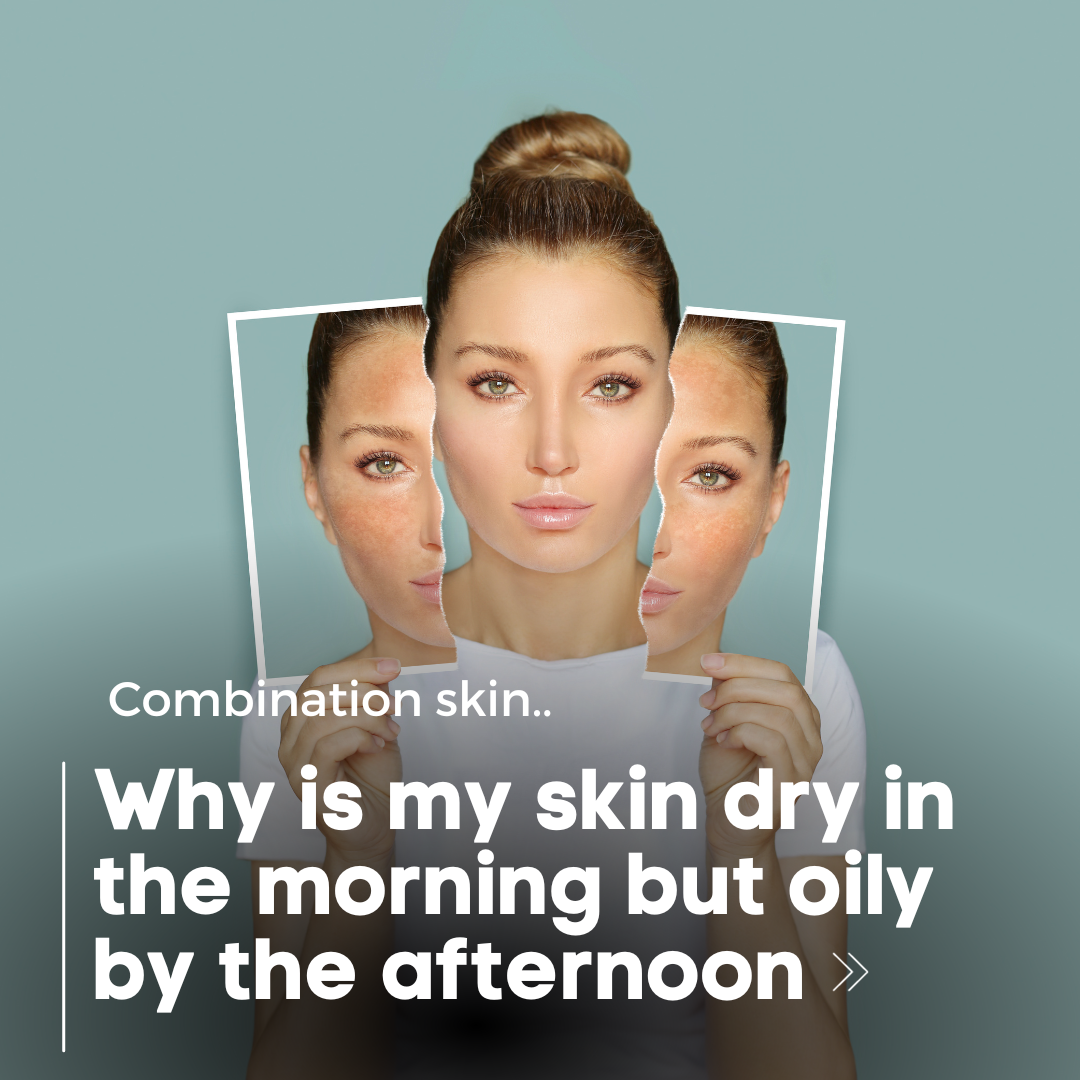News

Why does my skin feel dry in the morning but oily by the afternoon?
Dry and oily skin in the same day is a common skin concern. It is often referred to as “Combination skin” and typically the T-zone (forehead, nose, and chin) tend to be oily while the cheeks and other areas may feel dry.
Below are some common reasons why your skin may feel dry but oily. It is important to remember, the skin is a living organ and often times it is trying to communicate with us when there is an imbalance happening so we can fix it.
This is when it is a good time to see a professional who can properly assess and diagnose your skin for where it is at, at the present time and help you with a plan to get it back on track.
Here are some common reasons we see why you may be experiencing dry but oily skin;
- Dehydration: Dehydrated skin lacks moisture so your body may produce more oil to compensate for the lack on hydration. This can make your skin feel dry and tight initially and then oily later in the day.
- Weather changes: Environmental factors like humidity and temperature can affect your skin. In hot or humid weather you may sweat more, leading to increased oil production while cold, dry weather can exacerbate dry skin.
- Incorrect skincare products: Using products that are too harsh or not suitable for your skin type can exacerbate the problem. Harsh cleansers can strip your skin of natural oils, leading to dryness therefore your skin will then overcompensate by producing more oil.
- Hormonal fluctuations: Hormonal changes, especially during the menstrual cycle, pregnancy or menopause can affect your skin and lead to changes in oil production.
- Diet: You diet can play a role in your skin’s condition. Consuming high-sugar or high-fat foods may affect sebum production. A balanced diet can help regulate your skins oiliness.
To manage skin that is feeling “Combination” you can try the following:
- Use a Gentle Cleanser. Choose a mild, hydrating cleanser that won’t strip your skin of natural oils.
- Be aware of exfoliating products you may be using and how many at the same time. Just because you don’t use an exfoliating scrub regularly, doesn’t mean you aren’t exfoliating. Many products these days contain ingredients such as AHA’s and BHA’s, enzymes, fruit acids and even retinols. Although these are wonderful for resurfacing the skin and increasing cellular turn over, they can be a form of exfoliation due to the way they make the skin work.
- Moisturise. Apply a moisturiser that is right for your skin. Holding hydration in is key when it comes to a moisturiser.
- Use Sunscreen. Always wear sunscreen to protect your skin from UV damage.
- Stay hydrated. Even though the water we drink will go to our other internal organs first, we will feel better and have a healthier glow when we stay hydrated from within.
If you’d like to learn more about your skin, our team of professional Therapists would be more than happy to provide you with a personalised consultation and skincare assessment. This is a great way to help individuals understand their unique skin needs and create a tailored plan to achieve your skin goals.
Latest Post
- 10 Tips for Healthy Skin
- Healthy Skin
- Receive $50 off your next Facial - Referral Program
- What is the best cream for wrinkles?
- Skin Improvement Program for 2024
- Does it really matter what Cleanser I use?
- Why does my skin feel dry in the morning but oily by the afternoon?
- Why is my skin becoming sensitive?
- Introducing Rossana - Salon Manager at Confidently Skin
- Introducing Julie - Saturday Salon Coordinator


